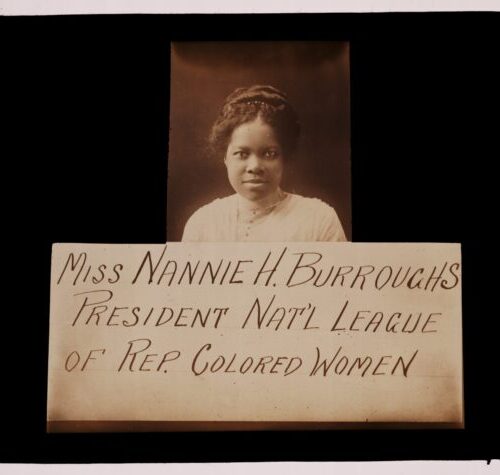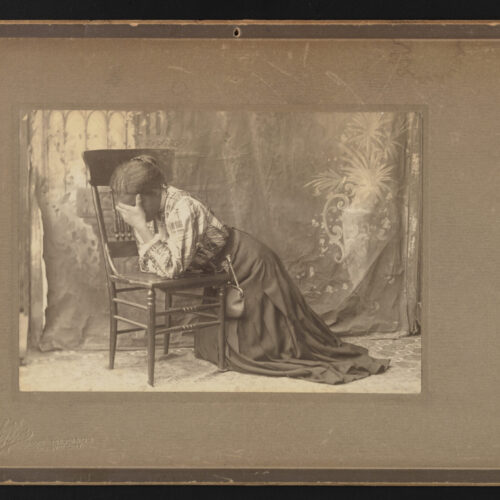Biography
Early Life
Nannie Helen Burroughs is most known for establishing the Women’s Convention Auxiliary in the National Baptist Convention. Born in Orange, Virginia, she grew up in Washington, D.C., and graduated from the prominent M Street (Dunbar) High School.
Burroughs attended the Nineteenth Street Baptist Church where Pastor Walter H. Brooks encouraged her to stay active in church activities.
The National Baptist Convention
As a young woman, Burroughs obtained a job at the Christian Banner in Philadelphia. She also began working as an assistant to a local pastor and board member of the National Baptist Convention (NBC), which was the Black Christian demonstration organized in the 1880s.
Her involvement in the NBC expanded when she delivered “How the Sisters Are Hindered From Helping” at their 1900 convention in Richmond, Virginia. Her presentation helped propel the creation of the Women’s Convention Auxiliary (WCA), which gave Black women a platform to speak about religious and social issues that impacted their lives.
Men held all leadership positions in the church so the WCA allowed Black women to advocate for social equality within and outside of the denomination.
Advocating for Women
Burroughs spent 48 years as the Corresponding Secretary of the WCA. In 1948, she was elected president where she served for the rest of her life. In one of her annual addresses in this role, she said the “Equality of Opportunity to attain unto His high purpose for us is our eternal goal. The weapons of our warfare are—desire, work, faith, and unswerving determination to get through to our trust and heritage and possess it.”
Burroughs demonstrated her “unswerving determination” as the founder and President of the National Training School for Women and Girls in 1909. The school, supported by the WCA, had a curriculum designed to train girls for both missionary and industrial work.
Burroughs explained “When academic subjects are enriched by proper teaching of Christian ideals, mixed well and taken regularly, they transform lives and give life strength and meaning. Our greatest desire is to send young women out from this school to contribute their part in helping to improve home life and remake their communities.”
Social Activism
Outside her life-long dedication to the NBC, Burroughs was also an instrumental social advocate in the women’s club movement. She was a leader in the National Association of Wage Earners founded in 1921 and a founder of the National League of Republican Colored Women in 1924. She also became nationally known for her passionate speeches and articles published in Black newspapers.
As the first woman to deliver the Tuskegee University commencement address, Burroughs said, “Young people, there is no force on earth, no handicap, no barrier on earth that can stay any race or individual who organizes its courage, its faith, its hopes, its industry, and its indomitable will. You can’t defeat it. You may delay it, or place a barrier around; you may block up the stream, but it will swing around the dam and join the current and continue on its way to the great ocean beyond.”
Burrough’s leadership commitment to her faith, political activism, and educational development created countless opportunities for generations of Black women.


